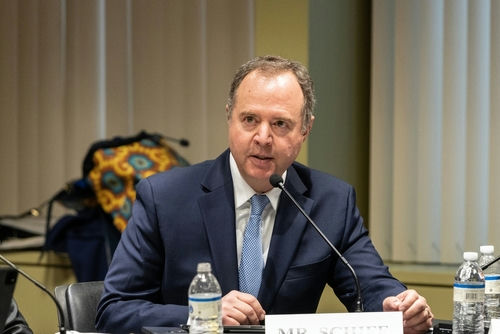President Trump’s explosive accusation that Senator Schumer tried to “extort” $2 billion in exchange for advancing over 140 stalled executive appointments has ignited a constitutional showdown that threatens to upend Senate procedure and frustrate the conservative mandate for government reform.
Trump’s Accusation of Extortion and Stalled Confirmations
On the eve of the August 2025 Senate recess, President Trump took to Truth Social to accuse Senate Minority Leader Chuck Schumer and Senate Democrats of “political extortion.” Trump claimed they demanded $2 billion in exchange for expediting the confirmation of more than 140 of his executive nominees. This public allegation comes as the Senate faces an unprecedented backlog of appointments, with Democrats systematically blocking confirmations by refusing voice votes or unanimous consent. The impasse has fueled conservative outrage, as vital executive positions remain vacant and the president’s constitutional authority is undermined.
The scale of the standoff is historic. Senate Democrats, led by Schumer, have used procedural tactics to delay or block virtually all Trump nominees, forcing time-consuming roll-call votes even for noncontroversial appointments. Negotiations between Senate Majority Leader John Thune and Schumer broke down in early August, with Democrats holding firm and Republicans expressing deep frustration. For conservatives who have long warned of the dangers of unchecked minority obstruction, the current crisis is the most acute test yet of the Senate’s ability to fulfill its constitutional role.
The “Nuclear Option” and the Battle Over Senate Rules
In response to the stalemate, Senate Republicans are openly considering the “nuclear option”—a rules change that would allow a simple majority to confirm executive nominees, bypassing the current supermajority requirements and blocking tactics. This remedy has been used before: Democrats invoked it in 2013 for lower courts and executive positions, and Republicans extended it to Supreme Court nominees in 2017. Both moves were controversial, but the scale of today’s backlog and the explicit financial demand alleged by Trump have brought the issue to a breaking point. Majority Leader Thune stated, “The Dems are dug in on a position that’s just not working,” signaling growing GOP resolve to break the deadlock.
Democrats, for their part, deny Trump’s extortion claim and frame their resistance as a defense of qualifications and proper vetting. Schumer has warned that changing Senate rules would set a dangerous precedent and “harm American families,” calling instead for bipartisan cooperation. However, with over 140 appointments on hold, many agencies are operating without permanent leadership, hampering the Trump administration’s ability to advance its agenda and address pressing national priorities. This obstruction not only delays policy, but also erodes public trust in the government’s basic functions.
Implications for the Constitution and Conservative Governance
The confirmation crisis strikes at the heart of the separation of powers and the president’s constitutional prerogative to appoint executive officials. For conservatives, the weaponization of Senate rules by the minority party represents an assault on limited government, accountability, and the will of the voters. The threat to invoke the nuclear option is not taken lightly, as it would reduce minority leverage and permanently alter Senate norms. Yet, many argue it has become necessary to restore basic function and prevent the left from holding vital government operations hostage to partisan demands.
Experts warn that repeated use of the nuclear option risks eroding the Senate’s deliberative character, but the immediate crisis leaves few alternatives. The broader impact extends beyond Washington: federal agencies, contractors, and the American public face uncertainty as leadership gaps stall essential services. The situation also reinforces conservative concerns about government overreach, partisan gridlock, and the need to defend constitutional processes from those who would subvert them for political gain.
Trump tells Schumer to ‘GO TO HELL’ over Senate nominee deal after negotiations blow up | Alex Miller, Fox News
Hours of tense negotiations to strike a deal on President Donald Trump’s nominees blew up Saturday night, and now lawmakers are headed home.
Senate Republicans and… pic.twitter.com/u8mRYiTtSi
— Owen Gregorian (@OwenGregorian) August 3, 2025
While Trump’s specific claim of a $2 billion demand remains unproven and denied by Democrats, the underlying facts are clear: a record number of nominees remain unconfirmed, and the Senate faces a pivotal choice about whether to uphold tradition or restore government function through majority rule. Conservatives see the current battle as a defining moment for constitutional governance, executive authority, and the future of the Senate itself.
Sources:
Trump accuses Senate Democrats of using nominee confirmations as leverage for funding deals
Senate Republicans threaten ‘nuclear option’ to confirm stalled Trump nominees
Senate GOP ready to go nuclear after Schumer’s ‘political extortion’ on Trump nominees
Trump accuses Schumer of ‘extortion’ amid stalled appointments


This is a long established practice in politics – blackmail the other party to get a ransom in return for their vote. No more!!!
So Schumer is calling for bipartisan cooperation. That means the Dems should cooperate. Seems simple to me.